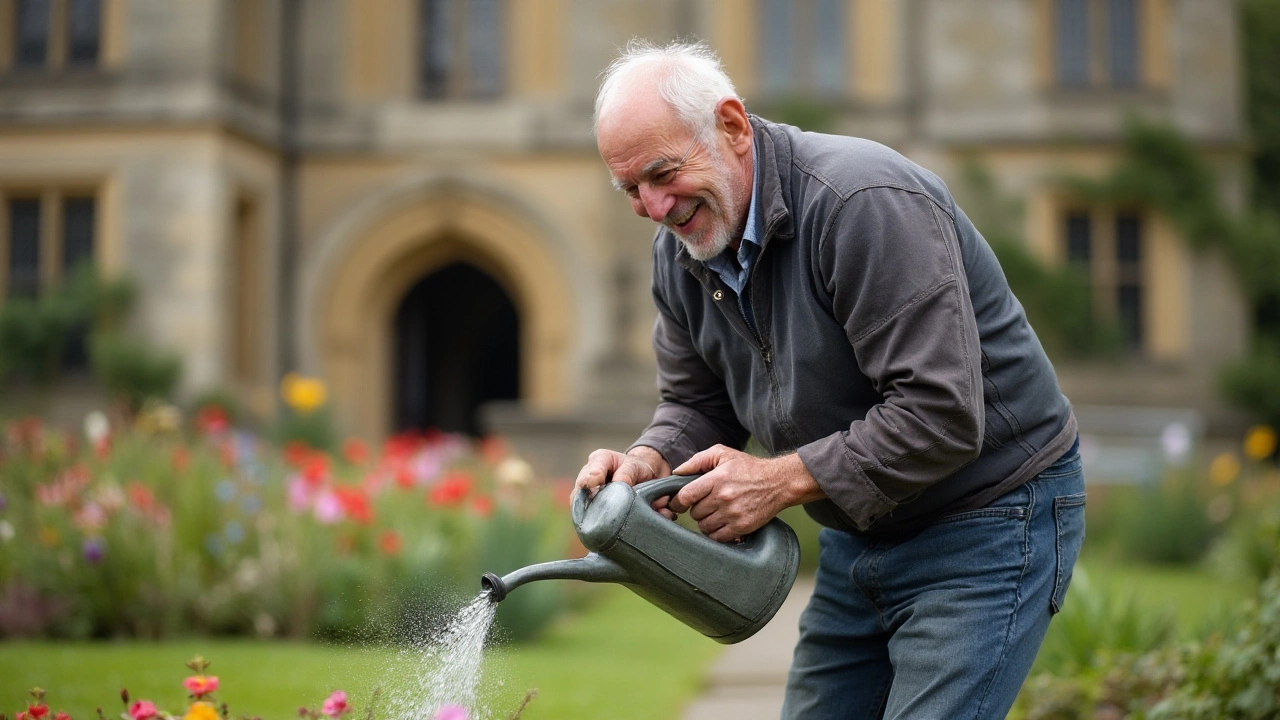Unpacking the Limits: Is Too Much Volunteering Harmful?
Volunteering is a rewarding way to give back, offering benefits not only to communities but also to those who give their time. However, the enthusiasm for helping others can sometimes lead to overcommitting, potentially causing volunteer fatigue. It is crucial to be mindful of the signs of burnout and to understand how excessive volunteering can impact one's mental health and overall well-being.
Maintaining a healthy balance between volunteering and personal obligations is important for ensuring that the act of giving remains fulfilling rather than draining. Recognizing the limits of one’s time and resources can help sustain long-term engagement with community service. It’s about knowing when to say no, maintaining clear boundaries, and ensuring that our desire to contribute positively doesn't compromise our own health.
- The Appeal of Volunteering: Why We Give Our Time
- Recognizing Burnout: When Helping Hurts
- Balancing Acts: Managing Time and Energy
- The Impact on Mental Health and Family Life
- Practical Tips for Sustainable Volunteering
The Appeal of Volunteering: Why We Give Our Time
For many, volunteering feels like a meaningful way to connect with our communities, offering a sense of purpose that transcends everyday routines. It opens doors to experiences that allow us to meet new people, learn new skills, and engage in impactful work that benefits both ourselves and those around us. This desire to give back is often rooted in a blend of altruism and self-interest, a natural human inclination to help others because it makes us feel good in return. The appeal lies not just in the act of service but in the transformational nature of these engagements, which often leave volunteers feeling enriched and fulfilled.
The positive psychological effects of volunteering have been well-documented over the years. Research shows that individuals who donate their time regularly experience lower levels of depression and stress while reporting higher life satisfaction. This is partly because volunteering can create a valuable social network, providing not just companionship but also a broader perspective on life. Many find that their personal problems seem smaller when viewed in the context of the broader challenges faced by the groups they are helping. This realignment of perception can help foster resilience and promote a more positive outlook on life.
"The best way to find yourself is to lose yourself in the service of others." - Mahatma GandhiThe impulse to volunteer, therefore, isn't merely a charitable act; it's a path to self-discovery and personal growth. It often starts with a single event, a friend’s recommendation, or even a school requirement, and can quickly become a regular part of one’s life. As people engage more deeply, many discover talents and passions they didn’t know they had, skills that aren’t just applicable in a volunteer setting but enhance personal and professional life as well. A community service experience that was initially just a box to tick can transform into a lifelong passion and calling.
Another appeal of volunteering is the ability to tangibly see the difference one is making. Whether it’s planting trees, distributing food to the needy, or mentoring a young person, the immediate impact is visible and heartfelt. Unlike some professional or daily life activities where outcomes can seem abstract or distant, volunteering offers the gratification of seeing real-world changes unfold as a result of one's efforts. This sense of accomplishment and contribution is a powerful motivator that keeps many volunteers coming back.
Volunteering doesn’t just enhance the lives of those who are helped; it has a ripple effect, benefiting communities at large. The skills, empathy, and understanding gained in volunteer environments often spill into other areas of volunteers' lives, influencing how they interact with family, colleagues, and strangers. Communities with strong volunteer networks are often more cohesive, resilient, and supportive, highlighting the societal benefits of individual acts of service. By participating in voluntary efforts, individuals help to lay the groundwork for stronger social ties and a healthier society.
Recognizing Burnout: When Helping Hurts
Volunteering, at its core, is about giving one’s time, effort, and energy to a cause without expecting anything tangible in return. It is the selfless drive to make the world a better place. Yet, as with many good intentions, there is a risk of pushing oneself too hard. Recognizing burnout is essential for any dedicated volunteer. Burnout happens when the physical, emotional, and mental exhaustion take a toll, reducing the ability to contribute effectively. A distinct warning sign is the feeling of being overwhelmed or emotionally drained, coupled with a loss of motivation. The zeal that once fueled your commitment begins to wane, making each volunteering session feel like an insurmountable chore rather than a fulfilling activity. This phenomenon can lead to absenteeism, where the volunteer may find themselves avoiding commitments due to stress.
Often, the desire to help and the perceived neediness of the cause can make volunteers overlook their own limits. This overcommitment is sometimes likened to a boiling pot — when left unattended, it spills over and causes a mess. Some volunteers may feel guilty about saying no, which traps them in a cycle of overextending themselves. This guilt-driven compulsion often masks itself as dedication, yet it corrodes mental health over time. During stressful periods, small tasks become significantly harder to accomplish, reflecting an underlying strain that is not visible at first glance. It's crucial to note that burnout doesn’t solely stem from time commitments; emotional factors like unresolved personal issues and chronic exposure to stressful environments can worsen this condition. Recognizing these signs early on is necessary for prevention.
Experts have often lauded the practice of effective self-care as pivotal in staving off burnout. As Jane Goodall, renowned primatologist, once said,
"What you do makes a difference, and you have to decide what kind of difference you want to make."This quote echoes the importance of pacing oneself and making deliberate, thoughtful contributions rather than overexerting one’s capacities. By prioritizing self-care, volunteers can remain vital and passionate about their causes over the long haul. It's essential to construct healthy boundaries that allow room for reflection and rest. Engaging with support networks, such as fellow volunteers or community leaders, can provide a sounding board for personal challenges, fostering a sense of camaraderie and understanding.
Data from the American Institute of Stress reveals that about 46% of stress stems from workload issues, which directly correlates to volunteer environments where one feels compelled to overcommit. This highlights the importance of picking and choosing volunteer activities wisely. A balanced approach not only prevents volunteer fatigue but also enhances the quality of service provided. Reflecting on personal goals and the initial reasons for volunteering can help realign efforts with sustainable practices. It’s often helpful to set specific, achievable goals for each volunteering session that align with personal capacities and schedules.
Ultimately, embracing the courage to step back and reassess priorities can lead to more gratifying experiences for both the volunteer and the community. While the act of volunteering often garners immense gratitude, it's vital to remember that personal sustainability ensures lasting contributions. Programs and organizations should recognize the importance of volunteer well-being, integrating support systems that allow individuals to express concerns and adapt roles according to their changing circumstances. The journey towards recognizing and addressing burnout begins with self-awareness, nurturing a healthy balance between giving to others and preserving one’s well-being.

Balancing Acts: Managing Time and Energy
Volunteering is a wonderful commitment, yet it's essential not to let enthusiasm undermine personal well-being. Many folks, eager to make a difference, find themselves stretched too thin, leading to stress and burnout. The key lies in balancing your volunteering pursuits with your personal life. This involves setting boundaries and prioritizing tasks to ensure you don't overexert yourself. One effective approach is to allocate specific times during the week solely dedicated to your volunteering activities, ensuring you allocate sufficient time for rest and your other obligations.
A useful technique is the time-blocking method, where you compartmentalize portions of your day for distinct activities. This ensures you attend both to volunteering and other personal responsibilities without mix-ups or fatigue. Balancing these acts requires saying 'no' at times, a challenging but necessary skill. Taking on every volunteering request is not feasible; thus, understanding that doing less but more meaningful work is sometimes more impactful than merely aiming for quantity.
An insightful perspective comes from a community leader who once said, “To serve others well, you must first serve yourself with rest and patience.” This underscores the importance of personal care in maintaining the energy required for effective community service. It's a reminder that taking time for oneself is not selfish but essential in the long run. Consistently high-energy output without breaks leads to diminishing returns, not just in energy but in one's ability to find joy in volunteering.
Implementing strategic approaches to maintaining energy levels can be beneficial. Here’s how you can manage time efficiently:
- Prioritize your tasks: Identify and classify tasks based on urgency and importance, making sure to focus first on those aligning with your goals.
- Routine checks: Periodically assess how much time each activity demands and re-evaluate priorities as necessary to ensure a balanced lifestyle.
- Maximum effort: Engage fully in your activities within scheduled windows, allowing yourself to focus without stressing about overlapping duties.
This balance is also about respecting and listening to your body’s cues. When energy dips, acknowledge it, and take short breaks for a breath of fresh air or a brief meditation. By keeping these considerations at the forefront, you ensure that the meaningful service you render is sustainable.
The Impact on Mental Health and Family Life
Volunteering brings an undeniable sense of fulfillment, yet it can also pose challenges when indulged in excess. The line between passion and overload can sometimes blur, leading to mental health concerns. Studies have pointed out that extended volunteering hours may contribute to stress and burnout. This feeling of overexertion can manifest in symptoms such as anxiety, irritability, or even depression. When we push ourselves without pause, it can lead to an emotional toll that affects both the individual and their loved ones.
One might think that volunteering primarily affects the volunteer, but its implications ripple outward, reaching family life. Constant commitments to community service may interfere with family time, reducing opportunities to connect and communicate with family members. The imbalance can foster feelings of neglect within family relationships, spiraling into misunderstandings or conflicts. If not managed mindfully, the well-intentioned acts of generous individuals can paradoxically alienate those closest to them. Repeated absenteeism from family gatherings or obligations due to volunteering might even lead to feelings of resentment, as family members may feel sidelined for external commitments.
"It's important to fill your cup first before pouring into others," reminds Dr. Emily Salveson, a renowned psychologist specializing in volunteer burnout. Taking care of our mental well-being safeguards against overextension and ensures that volunteer efforts remain a positive experience.Engaging in volunteering is most beneficial when accompanied by balance. Incorporating family time and ensuring personal well-being can help mitigate potential negative impacts. Families might consider volunteering together, which not only addresses the potential lack of time spent as a family unit but also strengthens bonds through shared experiences. This integrated approach allows everyone to benefit from the joy of giving, whilst preserving familial connections.
It's invaluable to understand one's personal limits and openly communicate them with loved ones. Family members can provide essential feedback and act as sounding boards, helping volunteers recognize when they're stretched too thin. Utilizing personal limits as a guide can ensure that we engage in volunteering sustainably. Sustainable volunteering—not only enhancing community impact but enriching personal life—is the ultimate goal for those eager to make a difference without sacrificing their well-being.

Practical Tips for Sustainable Volunteering
Volunteering holds a deep appeal for those who wish to make a difference, but sustaining this noble effort requires thoughtful planning. A key to sustainable volunteering is understanding your own limits and recognizing how much of your time and resources you can realistically offer. Start by taking a close look at your weekly schedule. Identify pockets of time where you can commit without stress. Balancing your community service obligations with work, family, and personal time ensures you're not stretching yourself too thin.
Assessing personal motivations can also help guide your volunteering decisions towards more meaningful engagements that resonate with your interests. Align your volunteering activities with causes that excite you or align with your values. This intrinsic motivation fuels sustainable effort and helps prevent burnout. Additionally, consider the skills and experiences you bring to the table. Reflecting on how these can best be utilized in your volunteer role can enhance your sense of purpose and impact.
To keep your enthusiasm alive, it's helpful to set clear boundaries. Make it known to the organization you're helping how much time you can feasibly commit over a certain period. If things start feeling overwhelming, communicating honestly about your capacity leads to better mutual understanding. Saying no is not about letting others down—it's about maintaining the longevity of your contribution.
"Volunteering is about giving time and talents to improve communities and positively influence others’ lives. It's essential to engage with flexibility and an unwavering commitment to personal boundaries." - Volunteering New Zealand
Engagement with a variety of activities can also keep your volunteering fresh and exciting. Trying different roles within an organization or even volunteering at multiple nonprofits can provide new perspectives and challenges. This diversity in engagement minimizes the monotony often associated with sticking rigidly to the same tasks.
Nurturing a support network among fellow volunteers is another effective way to make volunteering sustainable. Sharing experiences and challenges can help mitigate stress and bring a sense of camaraderie. It allows you to learn from others' experiences, pick up new strategies for balancing various commitments, and gain assurance that you're not alone.
Lastly, take occasional breaks to recharge. Resting is not an indication of weakness—instead, it’s essential for preserving the energy to continue contributing meaningfully. During these breaks, reflect on what you've accomplished and reassess your goals. Through these practices, sustainable and fulfilling volunteering becomes a vibrant, lasting part of your life.







